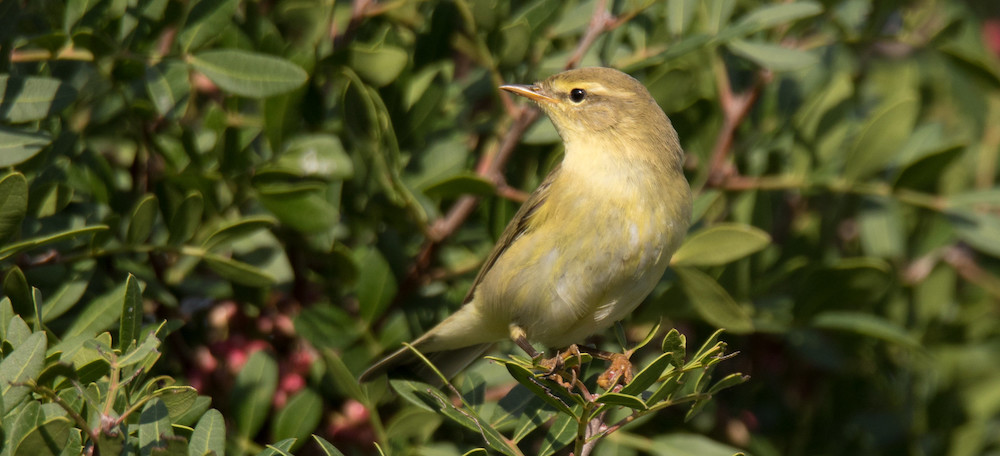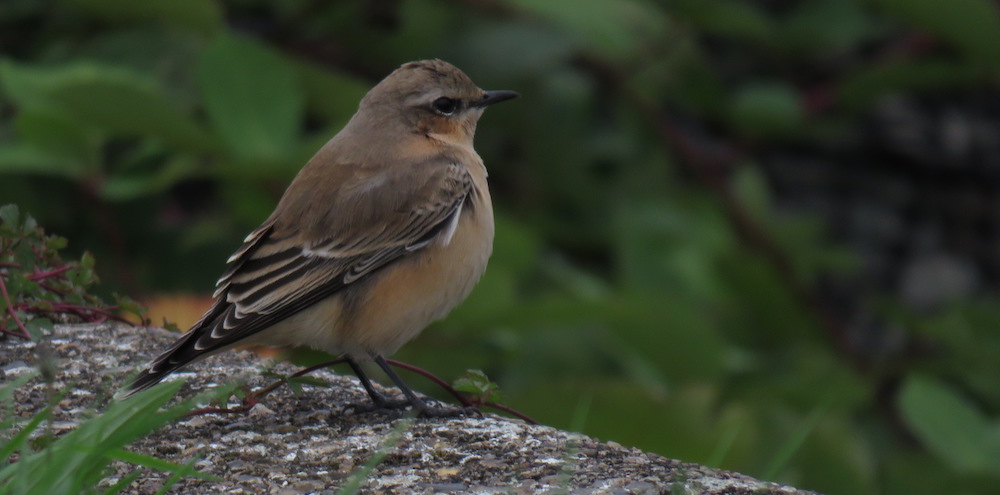61 Boring Birds: #67 Willow warbler

“It’s over”.
So said a local birdwatcher of few words, whose name I still don’t know, when the subject of meadow pipits came up. For the last few days they’ve been passing over in considerable numbers.
“Considerable,” is all relative, and by this I mean dribs and drabs, the odd one or two flying weakly overhead, and sip-sip-ing as they go. I counted eleven yesterday which, by Walthamstow standards, is notable.
They fly from north-east to south-west, coming from perhaps as far affield as Iceland or Scandinavia, adventurous behaviour not really befitting their rather spineless manner, voice and washed out streaky plumage. Despite being a resident species too, this influx is one of the first proper harbingers of the coming winter. Before the swallows have even left, Jack Frost throws down an entourage of hardy birds for the freezer.
Other signs of familiar, year round birds on moving to more auspicious winter hole-ups abound. The flock of shoveler on East Warwick is up to 66 birds today (good to see the numbers back after maintenance work last winter kept them at bay for most of it). I wonder if they realize how silly their oversized beaks appear. They must know they’re not like the other ducks, mustn’t they?
There are two very conspicuous kingfishers about too. Not breeding this year, I’ve seen one occasionally since mid August, but in recent days I’ve seen two on most days, and perching in plain sight (though still shy, and departing as soon as they realise they’ve been spotted). A couple of jackdaws — rare here, but slightly less so during periods when birds are generally on the move — lingered around the north of the reserve yesterday, and earlier in the week a snipe dashed for safety when my clomping footsteps echoed through the grassy bank it was probing for food in. And finally, a solo common sandpiper — the largish gatherings of which have long since dispersed — has tip toes nervously about Lockwood, and I wonder, perhaps over optimistically, if this slight latecomer will decide to grace our shores through the winter, as a few of its knd are wont to do.
It’s not just the arrival of hints of winter, or flushes of autumn, that inspire a strong sense of change; there is also, as I’ve touched on before, the almost palpable clinging on — or is it the drawing away? — of summer.
The number of terns still blessing us with their presence oscillates daily, but is never more than six or seven. Most likely a fixed set of late-developing youngsters and their parents, one of these days they too will be gone, leaving a still, silent absence behind. On Sunday I found another spotted flycatcher, which might end up being the last of the year. It flew from its leafy hidey hole in the canopy to the skeletal twigs of a dead tree, landing with its back to me. It did not turn around.

Yesterday a wheatear, starting off tame on the banks of Lockwood, flew to the thin twiglets at the top of a tall willow, and it too looked the other way. Unlike a wheatear to spend any time in the trees (birds of open moorland as they are), but it made a special effort to deliver this symbolic gesture.
“We’re leaving,” they all tell me. “We’re leaving.”
The flocks of warblers carry the same message. Blackcaps and chiffchaffs for the most part. A few will stay for the winter, but probably none of these summer/early autumn lightweights — a wind from the east will blow their more robust, continental friends in to rely on this nation of bird feeders’ largesse. In amongst them are the occasional whitethroat (both commonplace and lesser), but these are now outnumbered by goldcrests, which are finding their winter footing.
And Willow warblers, bright and sleek as an open top sports car driving along the coast, weave in and out of the foliages’ chicanes. Initially only passing through in small numbers, they are now present in every stretch of bushes. Holding themselves back for the final push for an Indian summer of birdlife. Their weary, hesitant, mournful song drips from their throats, sounding like the summer itself is exhaling.
“It’s over. With regret… it’s over.”
🦅 First boring bird
Related boring birds: Meadow pipit, Shoveler, Kingfisher, Jackdaw, Common sandpiper, Common tern, Spotted flycatcher, Blackcap, Chiffchaff, Whitethroat, Lesser whitethroat, Goldcrest,
🦚 All boring birds
Yaffle